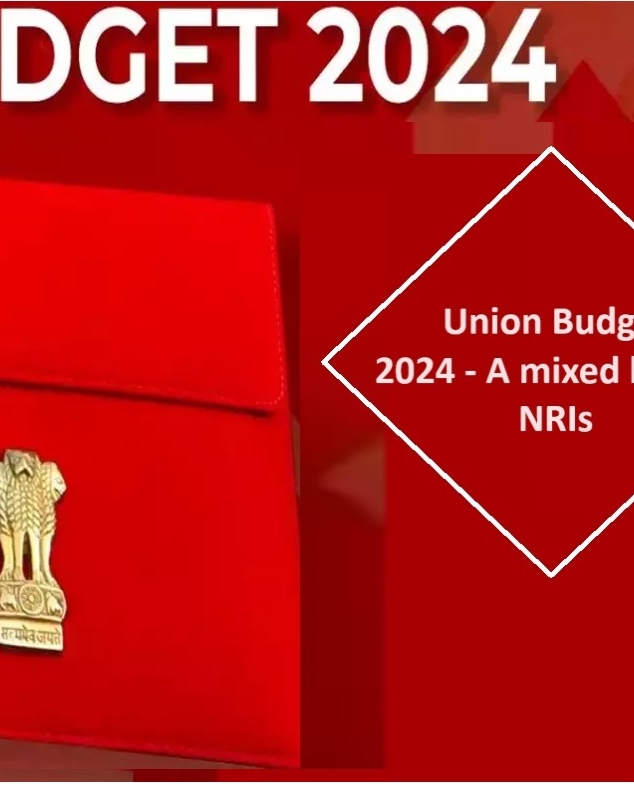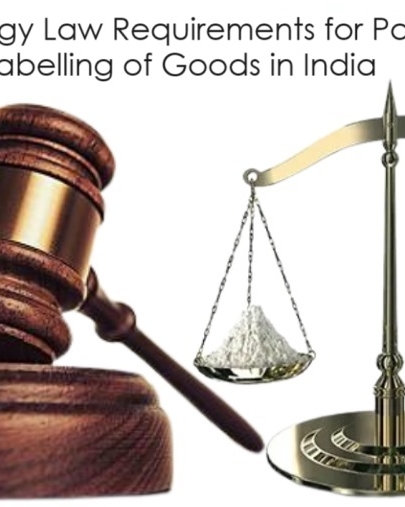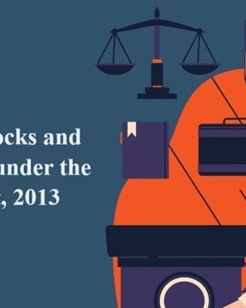Highlights:
Corporate Brief
- RBI circular on risk management and inter-bank dealing – Non-Deliverable Derivative Contracts.
- RBI notification on expanding the scope of Trade Receivables Discounting System.
- RBI notification on rationalization of branch authorization policy for Urban Co-operative Banks.
- RBI notification on guidelines on Default Loss Guarantee in digital lending.
- RBI notification for compromise settlement and technical write-offs.
- RBI circular for review of RBI (Call, Notice and Term Money Markets) Directions, 2021.
- RBI circular on remittances to International Financial Services Centers under the Liberalised Remittance Scheme.
- RBI circular on status of MIFOR as significant benchmark.
- RBI master direction on minimum capital requirements for operational risk.
- SEBI master circular for Electronic Gold Receipts.
- SEBI circular on modalities for launching liquidating scheme and for distributing the investments of Alternative Investment Funds (AIFs) in-specie.
- SEBI circular on manner of achieving minimum public unit holding for Real Estate Investment Trusts.
RERA Brief
- Guidelines dated 01/06/2023 issued by Real Estate Regulatory Authority, NCT of Delhi regarding registration and extension of registration of projects.
- Guideline dated 01/06/2023 issued by Real Estate Regulatory Authority, NCT of Delhi, regarding opening of mandatory bank accounts for registration of projects.
- Guidelines dated 01/06/2023, issued by Real Estate Regulatory Authority, NCT of Delhi, for real estate agents.
- Notice dated 08/06/2023 issued by Maharashtra Real Estate Regulatory Authority on anti-money laundering, countering the financing of terrorism, and combating proliferation financing for real estate agents.
- Circular dated 09/06/2023 issued by GOA Real Estate Regulatory Authority, regarding registration of reporting entities (real estate agents) with Financial Intelligence Unit (FIU-IND).
- Order dated 23/06/2023 issued by Chhattisgarh Real Estate Regulatory Authority regarding registration of real estate agents with Financial Intelligence Unit (FIU-IND).
NCLT Brief
- Whether the Compulsorily Convertible Debentures (“CCD”) would be treated as equity or as a debt instrument for the purpose of the Insolvency and Bankruptcy Code (“Code”) and whether the amount due and payable from the CCD would fall within the definition of ‘Financial Debt’ as defined under the Code?
Litigation Brief
- Elusive errors unveiled through long drawn process of reasoning, are not “Errors on the face of it”
- Case Brief: Institute of Chartered Accountants of India v/s The Competition Commission of India and Ors.
- WRIT AGAINST THE ORDER OF THE ARBITRATOR, DECIDING THE ARBITRABILITY OF THE DISPUTE, IS MAINTAINABLE ONLY IN EXCEPTIONAL CASES
Corporate Brief
Circular No. 05 dated 06.06.2023 of A.P. (DIR Series) RBI/2023-24/36 of the Reserve Bank of India (RBI):
- Risk Management And Inter-Bank Dealing – Non-Deliverable Derivative Contracts (NDDCs)
With an aim to develop the onshore market in Indian currency, the RBI has revised the existing definition of the NDDCs and has now permitted the Authorised Dealer Category-I (AD Cat-I) banks operating IFSC Banking Units (IBUs), in respect of the following:
- To offer the NDDCs involving Indian currency to resident non-retail users for the purpose of hedging and such transactions to be settled in Indian currency only.
- Flexibility of cash settlement in Indian or foreign currency in such transactions between two AD Cat-I banks, and between an AD Cat-I bank and person resident outside India.
Notification number CO.DPSS.POLC.No.S-258/02-01-010/2023-24 dated 07.06.2023 of the Reserve Bank of India (RBI):
- Expanding the scope of Trade Receivables Discounting System (TReDS)
To ease constraints faced by the Micro, Small and Medium Enterprises (MSMEs) in converting their trade receivables to liquid funds, the RBI had issued the ‘Guidelines for the TReDS (updated as on 02.07.2018. Based on the experience gained, and as announced in the Statement on Developmental and Regulatory Policies dated 08.02.2023, the RBI has decided to make the following enhancements to the TReDS guidelines;
- Facilitate insurance for transactions: Financiers place their bids on the TReDS platforms keeping in view the credit rating of buyers. They are generally not inclined to bid for payables of low rated buyers. To overcome this, insurance facility is now being permitted for TReDS transactions, which would aid financiers to hedge default risks, subject to certain conditions.
- Expand the pool of financiers: All entities / institutions to undertake factoring business under the Factoring Regulation Act, 2011 and the rules / regulations made thereunder, are now permitted to participate as financiers in TReDS. This would augment availability of financiers on TReDS platforms.
- Enable secondary market for Factoring Units (FUs): TReDS platform operators may, at their discretion, enable a secondary market for transfer of discounted / financed FUs within the same TReDS platform.
- Settlement of FUs not discounted / financed: To overcome the inconvenience cause to MSME sellers and buyers as well as for better reconciliation, TReDS platform operators shall now be permitted to undertake settlement of all FUs – financed / discounted or otherwise using the National Automated Clearing House (NACH) mechanism used for TReDS.
- Display of bids: To make the process more transparent, the platforms may display details of bids placed for an FU to other bidders; name of the bidder shall, however, not be revealed.
Notification Number DOR.CRE.REC.18/07.10.002/ 2023-24 dated 08.06.2023 of the Reserve Bank of India (RBI):
- Rationalization of Branch Authorization Policy for Urban Co-operative Banks (UCBs).
In order to rationalize the process of branch opening and to enable the UCBs to tap growth opportunities in the sector, it has been decided to grant general permission for branch expansion in the approved area of operation to financially strong UCBs.
Circular Number DOR.CRE.REC.21/21/07.001/ 2023-24 dated 08.06.2023 of the Reserve Bank of India (RBI):
- Guidelines on Default Loss Guarantee (DLG) in Digital Lending.
The recommendation pertaining to the FLDG (First Loss Default Guarantee) was under examination with the RBI. Arrangement between the regulated entities and lending service providers or between two regulated entitles involving Default Loss Guarantee (DLG), commonly known as FLDG, has since been examined by the RBI, it has been decided to permit such arrangements subject to the guidelines provide in the said Circular.
Notification Number DOR.STR.REC.20/21.04.048/ 2023-24 dated 08.06.2023 of the Reserve Bank of India (RBI):
- Compromise Settlement and Technical Write-offs
RBI has issued a comprehensive regulatory framework governing compromise settlements and technical write-offs covering all the regulated entities. The Framework provides for the regulated entities to put in place the board-approved policies in respect of the compromise settlements and technical write-offs.
The Framework also prescribes broad framework for delegation of power, prudential treatment, reporting mechanism, oversight by the board, cooling period, treatment of accounts categorized as fraud and willful defaulter, and other legal provisions to be included by the regulated entities in the said policies.
The Framework defines:
- Compromise settlement as referring to negotiated arrangement with the borrower to fully settle the claims of the regulated entities against the borrower in cash, while also sacrificing some amount due from the borrower.
- Technical write-off as referring to writing-off (fully or partially) the non-performing assets outstanding at the borrowers’ loan account, but for accounting purpose and without waiver of claims / recovery of the same.
Circular Number RBI/2023-24/38 of A.P. (DIR Series) Circular No. 06 dated 08.06.2023 of the Reserve Bank of India (RBI):
- Reserve Bank of India (Call, Notice and Term Money Markets) Directions, 2021-Review
The RBI vide the said review of the Directions permitted the scheduled commercial banks (excluding small finance banks and payment banks) to set their own limits for borrowing in call and notice money markets and such banks shall put in place internal board approved limited for borrowing within the prudential limits for inter-bank liabilities.
Circular number 06 of A.P. (DIR Series) RBI/2023-24/45 dated 22.06.2023 of the Reserve Bank of India (RBI):
- Remittances to International Financial Services Centres (IFSCs) under the Liberalised Remittance Scheme (LRS)
Presently, remittances to IFSCs under LRS can be made only for making investments in securities. In view of the gazette notification no. SO 2374(E) dated 23.05.2022 issued by the Central Government, the RBI has now directed that the Authorised Persons may facilitate remittances by resident individuals under purpose ‘studies abroad’ as mentioned in Schedule III of Foreign Exchange Management (Current Account Transactions) Rules, 2000 for payment of fees to foreign universities / institutions in IFSC region, for pursing courses which are mentioned in the above gazette notification.
Circular Number RBI/2023-24/46/FMRD.FMSD.03/ 03.07.25/2023-24 dated 23.06.2023 of the Reserve Bank of India (RBI):
The company administering financial benchmarks, that is Financial Benchmarks India Private Limited (FBIL) has been accorded approval to cease the publication of Mumbai Interbank Forward Outright Rate (MIFOR) after 30.06.2023. Accordingly, the MIFOR administered by FBIL shall cease to be a significant benchmark after 30.06.2023. The updated list of ‘sigificant benchmarks’ administered by FBIl is as follows (effective from 01.07.2023):
- Overnight Mumbai Interbank Outright Rate (MIBOR);
- USD/INR Reference Rate;
- Treasury Bill Rates;
- Valuation of Government Securities;
- Valuation of State Development Loans (SDL); and
- Modified Mumbai Interbank Forward Outright Rate (MMIFOR).
Master Direction Number RBI/DOR/2023-24/ 103 DOR.ORG.REC.22/21.06.050/2023-24 dated 26.06.2023 of the Reserve Bank of India (RBI):
- Master Direction on Minimum Capital Requirements for Operational Risk
The RBI has issued Master Direction on Minimum Capital Requirements for Operational Risk for all Commercial Banks.
The directions are called “the Reserve Bank of India (Minimum Capital Requirements for Operational Risk) Directions, 2023. The said Directions apply to all Commercial Banks (excluding Local Area Banks, Payments Banks, Regional Rural Banks, and Small Finance Banks).
The said Directions replace the existing approaches with a new standardised approach, i.e. Basel III Standardised Approach. The Directions has been divided into 4 parts – Part A contains provisions which are mandatory, Part B specifies guidelines which the banks are encouraged to comply, Part C contains frequently asked questions and Part D contains illustrations.
The effective date of implementation of these Directions shall be communicated separately by the RBI.
Master Circular Number SEBI/HO/MRD/MRD-Pod-1/P/CIR/2023/82 dated 01.06.2023 of the Securities and Exchange Board of India (SEBI):
- Master Circular for Electronic Gold Receipts (EGRs)
SEBI has been issuing various circulars from time to time for specifying the framework for EGRs, its risk management, standard operating guidelines for Vault Managers and Depositories, etc. In order to enable the stakeholders to have access to all the provisions mentioned in these circulars at one place, the provisions of the said circulars are incorporated in this Master Circular for EGRs.
Circular Number SEBI/HO/AFD/PoD-I/P/CIR/2023/098 dated 21.06.2023 of Securities and Exchange Board of India (SEBI):
- Modalities for launching Liquidating Scheme and for distributing the investments of Alternative Investment Funds (AIFs) in-specie
The said Circular dated 21.06.2023 amends the SEBI (Alternative Investment Funds) Regulations, 2012 to provide flexibility to the AIFs to deal with those investments that are not sold due to lack of liquidity during the winding up process. The Circular presents two primary paths for AIFs in such a case:
- Liquidation Scheme, that is selling such investment to a new scheme of the same AIF; and
- In-specie Distribution of unliquidated investments of a scheme.
Circular No. CIR/2023/106 dated 27.06.2023 of the Securities and Exchange Board of India (SEBI):
- Manner of achieving minimum public unitholding – Real Estate Investment Trusts (REITs)
To facilitate the achievement of minimum 25% (twenty five percent) public holding for listed REITs, SEBI vide its circular dated 27.06.2023, has provided the following methods:
- Issuance of Units to Public through offer document;
- Offer of sale of units held by Sponsor(s) / Manager / and their associates / related parties and Sponsor Group to public through offer document;
- Offer for sale of units held by Sponsor(s) / Manager / and their associates / related parties and Sponsor Group through secondary market;
- Right issue to public unitholders;
- Bonus issue to public unitholders;
- Allotment under Institutional placement;
- Sale of units held by Sponsor(s) / Manager / and their associates / related parties and Sponsor Group in the open market in ways as specified;
- Transfer of units held by Sponsor(s) / Manager / and their associates / related parties and Sponsor Group to Exchange Traded Fund managed by a SEBI registered mutual fund, subject to maximum of 5% of the paid-up unit capital of REIT; and
- Any other method approved by the SEBI on case-to-case basis.
RERA Brief
Guideline no: RERA/DELHI/Guidelines/2/2023 dated 01/06/2023 issued by Real Estate Regulatory Authority, NCT of Delhi regarding registration and extension of registration of projects.
The Real Estate Regulatory Authority, NCT of Delhi has issued guidelines for registration of projects and extensions of registration with RERA, namely, “The National Capital Territory of Delhi Real Estate (Regulation & Development) (Registration of Projects and Extension of Registration) Guidelines, 2023”.
The purpose of these guidelines is to define categories of real estate projects that require prior registration with the Real Estate Regulatory Authority, NCT of Delhi. The guidelines also outline the procedures for registration of real estate projects, grant and extension of validity of registration and process to be followed for uploading the details of the registered projects. Additionally, the guidelines cover the process for inclusion of fresh details and prescribe the fees associated with these purposes.
As per the said guidelines, the following projects, developed by the promoter themselves or in collaboration, and intended for sale, in full or in part, anywhere in NCT of Delhi, in both planned or unplanned areas, must be registered with the Real Estate Regulatory Authority, NCT of Delhi:
- Where, the area of land proposed for the development of a building or conversion of an existing building into apartments, or the development of plots for residential, commercial, farmhouses, or residential cum industrial purposes, as the case may be, exceeds an area of five hundred square meters;
- Where, the number of apartments (whether called block, chamber, tower, dwelling unit, flat, office, showroom, shop, godown, premises, suit, tenement, unit or by any other name, means a separate and self-contained part of any immovable property, including one or more rooms or enclosed spaces, located on one or more floors or any part thereof, in a building or on a plot of land, used or intended to be used for any residential or commercial use such as residence, office, shop, showroom or godown or for carrying on any business, occupation, profession or trade, or for any other type of use ancillary to the purpose specified) proposed to be developed exceed eight in all phases, irrespective of the area of plot;
- Any real estate project falling in any of the above categories, in respect of which the promoter had not received a completion certificate before 1/5/2017.
Guideline no: RERA/NCTD/guidelines/1/2023 dated 01/06/2023 issued by Real Estate Regulatory Authority, NCT of Delhi regarding mandatory bank accounts for registration of projects.
The Real Estate Regulatory Authority NCT of Delhi, has issued the “The National Capital Territory of Delhi Real Estate (Regulation & Development) (Mandatory Bank Accounts for Registration of Projects) Guidelines, 2023” to define the types and categories of the accounts to be opened by the promoter prior to registration of the project with Real Estate Regulatory Authority, NCT of Delhi. The guidelines prescribe procedure regarding the operation of accounts and for utilization of funds collected from the allottees.
The guidelines provide that the following categories of accounts required to be opened by the promoter prior to registration of the project:
- Project Master Account (“Master Account”):
- Separate bank account in a scheduled bank is to be maintained by the promoter and 100% of the receivables from the buyers (allottees) will be deposited in this account;
- This account must be free from any encumbrances, liens, loans, or control of third parties;
- It must be mentioned in project related documents vis. application form, builder-buyer agreement and other documents and can only be changed with the permission of the Authority.
- Project RERA Escrow Account (“RERA Account”):
- Separate bank account in a scheduled bank is to be maintained by the promoter and 70% of the amount realized from the buyers is to be deposited to cover the cost of construction and land cost of the project and 70% amount from the Master Account is required to be transferred to this account automatically at the end of each business day.
- This account must also be free from any encumbrances, liens, loans, or control of third parties;
- Funds can be released from this account upon submission of relevant certificates as per provisions of RERA, 2016;
- This account is in the nature of reimbursement account for reimbursement of the expenditure incurred and pai on proportionate land cost and construction cost; and
- Withdrawals from this account should only cover the project’s costs required for the next final quarter and before withdrawing the promoter is required to obtain a certificate from an engineer, architect, and chartered accountant for purpose of certifying that, withdrawal has been in the proportion to the percentage of work completed.
- Project Free Account (“Free Account”):
- Separate bank account in a scheduled bank is to be maintained by the promoter. It will hold the remaining 30%
of the amount received from the buyers after depositing 70% in the RERA Account. 30% amount from the Master Account is required to be transferred to this account automatically at the end of each business day
- The funds in this account can be used for making finance costs, loan repayment/pre-payment, or other project-related business activities.
It’s important to note that these accounts and their operations are subject to the specific provisions and regulations of the Real Estate (Regulation and Development) Act, 2016.
Guideline no: RERA/DELHI/Guidelines/3/2023 dated 01/06/2023, issued by Real Estate Regulatory Authority, NCT of Delhi for real estate agents.
Real Estate Regulatory Authority, NCT of Delhi has issued guidelines for Real Estate Agents, namely, “The National Capital Territory of Delhi Real Estate (Regulation & Development) (Real Estate Agent) Guidelines, 2023”.
The objective of these guidelines is to establish the procedures for making changes in details of the real estate agent’s information after the issuance of the registration certificate. The guidelines also provide a mechanism to re-validate period of registration due to extension of lease of premises or renewal of the registration upon completion of the period of five years from the date of registration. Furthermore, the guidelines specify the fee applicable for these purposes.
Notice No. MahaRERA/Secy/Notice/913/2023 dated 08/06/2023 issued by Maharashtra Real Estate Regulatory Authority on anti-money laundering, countering the financing of terrorism, and combating proliferation financing for real estate agents.
The purpose of these guidelines is to provide an overview and summary of the relevant anti-money laundering and anti-terrorism financing legislations in India. Specifically, it covers the Prevention of Money Laundering Act, 2002 (referred to as the “PMLA”), the Prevention of Money Laundering (Maintenance of Records) Rules, 2005 (referred to as the “PMLR”), the Unlawful Activities (Prevention) Act, 1967 (referred to as the “UAPA”), and The Weapons of Mass Destruction and their Delivery Systems (Prohibition of Unlawful Activities) Act, 2005 (referred to as the “WMDA”).
These guidelines highlight the applicability and implications of these legislations for real estate agents so as to enable compliance of the provisions and obligations as incorporated in the said guidelines.
Circular No. 1/RERA/AML/(Re-agent)/2023/511 dated 09/06/2023 issued by GOA Real Estate Regulatory Authority regarding registration of reporting entities (real estate agents) with Financial Intelligence Unit (FIU-IND).
As per the said Circular dated 09/06/2023, the Financial Intelligence Unit (FIU-IND) is created under Prevention of Anti Money Laundering Act, 2022 by the Ministry of Finance to receive cash/ suspicious transactions reports, analyze them and to disseminate financial information to regulatory/ intelligence authorities.
This Circular directs all Real Estate Agents registered with RERA having annual turnover of Rupees twenty lakhs and above to register themselves with FIU-IND on top priority latest by 10/6/23.
Order No. 18/RERA/2023/850 dated 23/06/2023 issued by Chhattisgarh Real Estate Regulatory Authority regarding registration of real estate agents with Financial Intelligence Unit (FIU-IND).
In pursuance to the official letter of Additional Secretary, Ministry of Finance, Department of Revenue, Government of India, New Delhi, dated 05/06/2023. Chhattisgarh Real Estate Regulatory Authority has directed all Real Estate Agents registered with RERA having annual turnover of Rupees twenty lakhs and above to register themselves with FIU-IND on top priority latest by 26/6/23.
NCLT Brief
Whether the Compulsorily Convertible Debentures (“CCD”) would be treated as equity or as a debt instrument for the purpose of the Insolvency and Bankruptcy Code (“Code”) and whether the amount due and payable from the CCD would fall within the definition of ‘Financial Debt’ as defined under the Code?
Brief Facts of the Case
IVRCL Limited (“IVRCL”) won a bid in April 2009 for undertaking construction, operation, and maintenance of a project under ‘National Highway Authority of India’ (“NHAI”). Pursuant thereto, a concession agreement was entered into between the subsidiary of IVRCL, i.e., IVRCL Chengapalli Tollways Limited (“Corporate Debtor”) and NHAI for the execution of the said project. Furthermore, IFCI Bank (“Appellant”) agreed to provide financial assistance to the Corporate Debtor for execution of the project through CCDs issued by the Corporate Debtor.
The Appellant had agreed to subscribe to CCDs amounting to Rs. 12.5 crores vide a ‘Debenture Subscription Agreement’ (“DSA”). The Corporate Debtor, IVRCL and the Appellant entered into a share buy-back agreement dated 14.10.2011, wherein the terms and conditions of the buy-back of aforementioned CCDs subscribed by the Appellant were mentioned. Furthermore, DSA empowered Appellant to sell the CCDs to a third party.
Vide order dated 20.04.2020, the National Company Law Tribunal, Hyderabad Branch (“NCLT”) initiated the Corporate Insolvency Resolution Process (“CIRP”) of IVRCL. Pursuant thereto, the Appellant filed a claim with the Resolution Professional of the Corporate Debtor; however, the same was rejected. Subsequently, the Appellant filed an application challenging the rejection of claim before the NCLT and the NCLT upheld the decision of the resolution professional rejecting the claim of the Appellant.
The NCLT held that the CCDs subscribed by the appellant was to be treated as equity and not as debt. The NCLT also held that the CCDs cannot acquire the status of debt on default because interest on CCDs is to be paid by the sponsor, i.e., IVRCL, the holding company of Corporate Debtor and the Corporate Debtor was not under any obligation to pay interest on the borrowing.
Aggrieved by the aforesaid order, the Appellant preferred an appeal before the National Company Law Appellate Tribunal, Chennai (“NCLAT”).
Observation and Decision of NCLAT
The NCLAT held that in the present case, the CCDs had matured before the initiation of CIRP proceedings of the Corporate Debtor. The NCLAT observed that it is evident from the record that the investment was in the form of debentures which would be converted into equity. Furthermore, the terms and conditions of the DSA and the parties intent did not specify anywhere that the instrument would acquire the nature of a financial debt in the occurrence of any event which was evident from the provisions of the Loan Agreement and the Concession Agreement executed between NHAI and the Corporate Debtor, which define equity to include CCDs as part of the Project’s equity component.
Thus, the NCLAT held that the CCDs are equity instruments and do not fall within the definition of Financial Debt as defined under Section 5(8) of the Code. Hence, the NCLAT dismissed the appeal.
Case Referred– M/s IFCI Ltd. Vs. Sutanu Sinha (Comp App (AT) (CH) (Ins) No. 108/2023)
Litigation Brief
Elusive errors unveiled through long drawn process of reasoning, are not “Errors on the face of it”
In the matter of: Arun Dev Upadhyaya v. Integrated Sales Service Ltd., 2023 SCC OnLine SC 779
Decided by Hon’ble Supreme Court of India on 5 July 2023.
Factual matrix of the case:
- M.C. Management Consultants Limited (DMC) and Integrated Sales Service Ltd. (Respondent No. 1) entered into a Representation Agreement to provide services on a commission basis. The Agreement states that any disputes between the parties will be governed by the laws of the State of Missouri, USA, and will be resolved through arbitration by a single arbitrator, as outlined in the Agreement.
- Respondent No. 1 issued a demand for initiating arbitration to Review Petitioner (Arun Dev Upadyaya) who was a director of DMC under Commercial Arbitration Rules of American Arbitration Association seeking damages to the tune of US $ 4.8 million. The Review Petitioner filed Order 39 Rule 1 & 2 application on the same claiming that it could not be compelled to participate in the arbitration as he was not a signatory to the Agreement. An order rejecting the said application was passed by the Tribunal stating that the Tribunal had jurisdiction to decide whether the non-signatory to the Representation Agreement were appropriately named in the arbitration or not.
- The impugned judgment dated 10.08.2021 titled Gemini Bay Transcription Pvt. Ltd. vs. Integrated Sales Service Ltd. & Anr. wherein the civil appeals filed by the Review Petitioner were dismissed, on the ground that it could not be compelled to participate in the arbitration as it was not a signatory to the Agreement.
- The Division Bench finally allowed the Arbitration Appeal and held the award to be enforceable against Review Petitioner and GBTL also as the award was a foreign award.
- These orders were challenged before Hon’ble Supreme Court by the Review Petitioner by way of filing SLP. DMC also filed separate SLPs. In the SLP filed by DMC, the Court granted leave subject to condition that it deposits US $ 2.5 million. The Hon’ble Court vide judgment dated 10.08.2021 dismissed all the appeals. The present Review Petitions have been preferred only by Arun Dev Upadhyaya (Review Petitioner) to review the judgement dated 10.08.2021.
Issue concerned:
- Whether there is any error apparent on the face of the record so as to enable the superior court to call for the records and quash the order by a writ of certiorari or whether the error, if any, was “a mere error not so apparent on the face of the record”, which can only be corrected by an appeal if an appeal lies at all.
Observations made by Hon’ble Supreme Court:
- The bench of Justices B R Gavai and Vikram Nath reinforced the ruling by exhaustively reviewing the grounds and the findings returned debunking the claims of the Review Petitioner upholding his disagreement. Further adding to the observation, the Hon’ble court has laid down that the review power with the court is not an appellate flight and is strictly confined to the scope and ambit of Order XLVII Rule 1 of Code of Civil Procedure, 1908.
The following observations were made:
“Each and every argument having been considered by this Court in its judgment dated 10.08.2021, the arguments advanced if accepted would result in expressing a different opinion on the points raised and decided, which we are afraid do not fall within the settled contours of Order XLVII Rule 1 CPC relating to error apparent on the face of record. The other grounds of invoking the review power are neither existing nor have been raised in the present petitions.”
- The Hon’ble Court laid down that “an error on the face of record” strikes instantly and should be glaring errors, defying the long-drawn deliberations on the points where there may conceivably be two different opinions, putting the Review Petitioner into perilous position entrapped by mistake or error.
- The Hon’ble Court found no merits to entertain the review petition and accordingly dismissed it.
Case Brief: Institute of Chartered Accountants of India v/s The Competition Commission of India and Ors.
Background:
The Delhi High Court has ruled that decisions made by regulators while performing their regulatory duties under their statutory authority are not subject to scrutiny by the Competition Commission of India. The court set aside an investigation initiated by the CCI issued against the Institute of Chartered Accountants of India (ICAI).
The Institute of Chartered Accountants of India filed the current petition, to contest a decision made by the Competition Commission of India (CCI) pursuant to Section 26(1) of the Competition Act, 2002, in which the CCI directed the Director General to investigate into a matter involving the Continuing Professional Education (CPE) programme run by ICAI. The CPE programme enables ICAI members to maintain the necessary professional competence and guarantees that the professional services they provide are of the highest calibre. A Chartered Accountant must spend a specified number of hours over the course of three years in accordance with the programme requirements attending CPE seminars and workshops in order to stay updated on advancements in their field.
Before the commission, an informant provided information under Sec 19(1)(a) of the Competition ACT arguing that the institution should permit its members to earn CPE credits by attending seminars of their choosing and interests, which may be organised by other groups or organisations. The Informant contended that ICAI was abusing its dominant position in the relevant market as per Section 4 of the Act.
This prompted the commission to form a prima facie opinion that by conducting the CPE programme, directly or through its organs, the ICAI was not only creating an entry barrier for other market players but was also imposing an unreasonable restraint. This was also an arbitrary exercise of its powers.
Submissions:
On Behalf of ICAI: ICAI is a statutory body and charged with carrying out regulatory functions under the CA Act. It was submitted that conducting the program for continuing professional education, in furtherance of its statutory functions, lacks the ingredients of any commercial activity and therefore, is outside the sweep of the Competition Act. Further, ICAI is not an “enterprise” within the meaning of Section 2(h) of the Competition Act, since it is not carrying on any economic activity.
On Behalf of CCI and Informant: The present petition was not maintainable because an order under Section 26(1) of the Competition Act was merely an administrative / interdepartmental direction.
- Issues:
The Delhi High Court recognized two issues in contention-
- Whether ICAI is an enterprise within the meaning of Section 2(h) of the Competition Act.
- If so, is there any abuse of dominant position as per Section 4 of the Act, and can it be scrutinized by the CCI.
Decision:
With respect to the first issue, the Court came to the conclusion that ICAI is an ‘enterprise’ as per the wide definition provided under Section 2(h) as it is a ‘person’ under Section 2(l) and service rendered in field of education by it also falls within ‘service’ under Section 2(u). Further, the present function cannot be termed as a sovereign function of the Government which is specifically excluded from the definition of enterprise. Even though earning revenue is not an objective, it does carry on economic activity.
The court observed that the decision of ICAI to frame the CPE Program for maintenance of professional standards cannot be considered as abuse of its dominant position. ICAI falls within the definition of ‘statutory authority’ under Section 2(w). ICAI’s decision that its members should attend the CPE program is its decision as a regulator and not a service provider.In terms of Section 15(2)(e) of the CA Act, the Council / ICAI has the power and the function to recognize foreign qualification and training for the purposes of enrolment. The discretion to recognize certain foreign qualifications is vested with ICAI. Regulatory powers are not subject to review by the CCI.
The bench further noted that the CCI exercises powers conferred under the Competition Act, which in terms of Section 62 of the Competition Act, is in addition and not in derogation of other statutes.
It was further observed by the court that the scope of examination must be confined to only those areas of economic activities, which have a bearing on the market that engages entities involved in trade and commerce. The bench said that it is unable to accept that the jurisdiction of the CCI extends to compelling a statutory body to outsource functions that it performs in discharge of its statutory duties notwithstanding that the same may fall within the sphere of economic activity. Accordingly, the Delhi High Court quashed the investigation ordered by CCI against the Institute of Chartered Accountants of India (ICAI).
WRIT AGAINST THE ORDER OF THE ARBITRATOR, DECIDING THE ARBITRABILITY OF THE DISPUTE, IS MAINTAINABLE ONLY IN EXCEPTIONAL CASES
IN THE MATTER OF: IDFC First Bank Limited v. Hitachi MGRM Net Limited
(pronounced by the Hon’ble High Court of Delhi on 11.07.2023 in W.P(C) 8573 of 2021 [2023/DHC/4698])
Facts:
- The Petitioner, IDFC First Bank Limited, and the Respondent, Hitachi MGRM Net Limited, entered into agreements i.e., Strategic Partnership Agreement (“SPA”) and Business Development Agreement (“BDA”), dated 15.05.2017, with the objective to promote each other’s business.
- Certain disputes arose between the parties and accordingly the agreements stood terminated. The Petitioner asserted that an amount of Rs. 15 Crores, paid by the Petitioner as advance, was refundable by the Respondent to it. As the Respondent failed to refund the same, the Petitioner invoked arbitration on 28.06.2019.
- During the pendency of the arbitration proceedings, the Hon’ble Supreme Court’s rendered its decision in Vidya Drolia and Others vs. Durga Trading Corporation[1]. The Petitioner was of the opinion that, in terms of this decision, the disputes which are governed by the Recovery of Debts and Bankruptcy Act, 1993 (hereinafter ‘RDB Act, 1993’) would not be arbitrable.
- Therefore, the Petitioner moved an application, under Section 16 of the Arbitration and Conciliation Act, 1996 (“the Act”) challenging the jurisdiction of the Arbitral Tribunal and seeking termination of the mandate of the Tribunal on 23.02.2021. The Ld. Arbitral Tribunal passed the order, dated 31.05.2021, dismissing the application under Section 16 of the Act.
- The Petitioner preferred the present writ, against the aforesaid order of the Tribunal, in the light of the decision in Vidya Drolia. The Respondent challenged the maintainability of the present Writ Petition stating that the Petitioner’s only remedy, under the Arbitration Act, is to raise a challenge under Section 34 of the Act.
Issues before the Court:
- Whether the present writ petition is maintainable and is liable to be entertained?
- Whether the arbitral proceedings ought to continue in view of the objection as to the non-arbitrability raised?
Courts Observations and Findings:
- The Hon’ble High Court of Delhi opined that an order passed under Section 16 of the Act is appealable if the plea raised is held to be maintainable and the arbitral proceedings are terminated. However, if the plea is rejected and the arbitral proceedings continue, no appeal is provided. Therefore, the intention is not to permit an appellate remedy in case the Arbitral Tribunal holds that it has jurisdiction to proceed with the reference. Furthermore, such an order would be liable to be challenged only once the final award is passed by invoking the terms of Section 34 of the Act.
- The Court placed reliance on the judgement of Deep Industries Ltd. v ONGC Ltd.[2] wherein the Hon’ble Supreme Court of India categorically held that “the drill of Section 16 of the Act was that where a Section 16 application was dismissed, no appeal was provided and the challenge to the Section 16 application being dismissed must await the passing of a final award at which stage it may be raised under Section 34.” The Court further relied upon the judgement of Bhaven Construction v. Executive Engineer Sardar Sarovar Narmada Nigam Ltd. and Ors.[3] which reiterated the findings of the above said judgement.
- The Hon’ble High Court also referred to the matter of Surendra Kumar Singhal & Ors. v. Arun Kumar Bhalotia & Ors[4]., wherein the Supreme Court of India laid down the circumstances in which such petitions ought to be entertained which specially stated that for an “interference under Article 226/227, there have to be exceptional circumstances”
- Thus, the Court, relying on the case of Tagus Engineering Private Limited & Ors. v. Reserve Bank of India and Ors.[5] held that the power of the court, under Article 226/227 of the Constitution of India, must be used only in exceptional circumstances when the order was patently illegal or perverse on the face of it or the tribunal lacked the jurisdiction to pass such orders.Thus, the present petition was dismissed by the Hon’ble High Court of Delhi.
[1] (2021) 1 Supreme Court Cases (Civ) 549:2020.
[2] (2020) 15 SCC 706.
[3] (2022) 1 SCC 75.
[4] 279 (2021) DLT 636.
[5] Writ Petition No. 3957/2021.






















